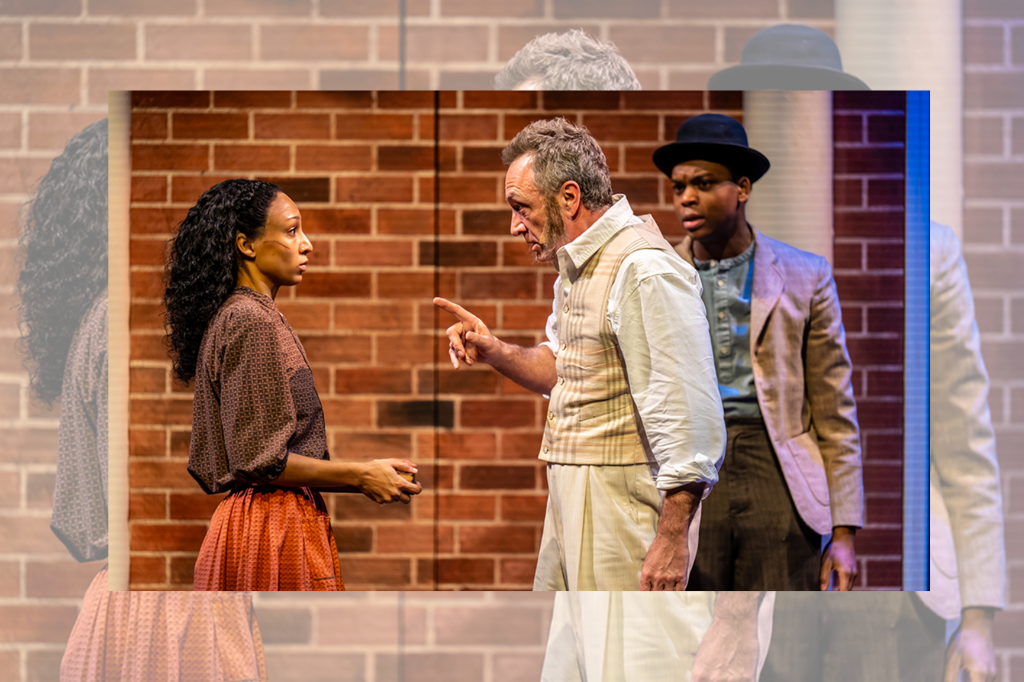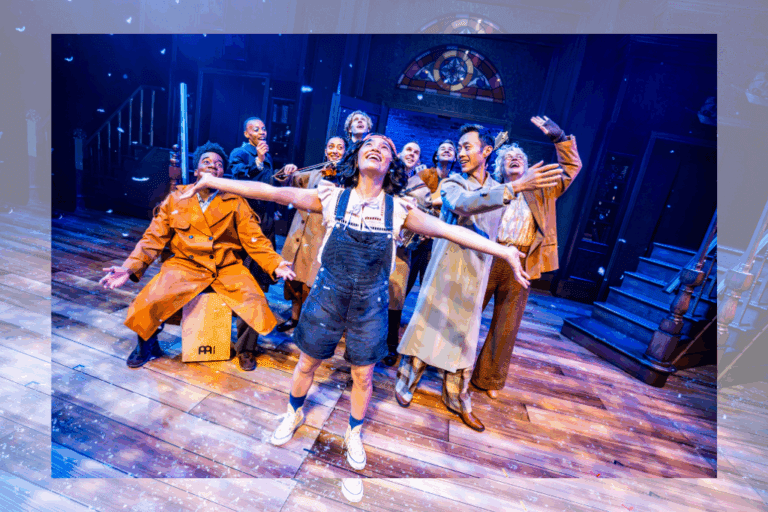REVIEW: Jasmine Case astonishes as a wordless slave in Young People’s Theatre’s Truth
In the age of fake news, AI, and Donald Trump, how would you define “truth?”
Or, more to the point, how would you define it without using words at all?
Young People’s Theatre (YPT)’s lovely production of Truth, adapted from Caroline Pignat’s “The Gospel Truth” by Kanika Ambrose, endeavours to answer this very question, following an enslaved young woman named Phoebe on her path to freedom in 1858. Phoebe (Jasmine Case) lives on a plantation in Virginia, and as we get to know her, we soon realize she doesn’t speak. Ambrose’s adaptation peels away the layers of Phoebe’s backstory as we learn the atrocious things that have happened to her in her time on the plantation, and in the play’s whole 80-minute run time, we barely hear Phoebe utter a word — instead, the storytelling relies on Case’s exquisite acting skills, which make this dark tale of slavery and genealogical trauma a vital, gripping watch.
Under the generous directorial hand of Sabryn Rock, Truth is a wonderful sight to behold. Shannon Lee Doyle’s set and costume designs invite curiosity about the Civil War for YPT’s youngest audience members; I say this as someone who had the play narrated for me by an inquisitive four-year-old and her mother in the row behind me (perhaps the best way to experience a show at this particular theatre). Doyle’s costumes are well constructed and lush, employing taffeta and lace for the plantation’s white masters, Duncan and Tessa, and worn-in work clothes for the slaves working the fields: Shad, Bea, Will, and Phoebe. Doyle’s set, too, is functional and picturesque, suggesting the many spaces in and around the plantation that Phoebe must navigate in her quest for freedom and understanding.
Truth is brought to life by an accomplished bevy of actors who offer depth and nuance to characters not always given much to work with by the source material, with the exception of Phoebe. Case steals every scene she’s in, with enormous, expressive eyes and birdlike movements from place to place. Even when Case stands on the sidelines of the action of a given scene, she’s so very present, flitting from spot to spot in a fascinating display of physicality.
Chiamaka Glory as Bea/Ruth brings subtle differences to both of her roles — differentiating them here would bring us into spoiler territory, but trust that the double-casting is warranted — and blesses Truth with a warmth that contrasts the heinousness of how the slaves are treated on Duncan’s plantation. Dante Jemmott as Shad and Micah Woods as Will create worthy confidants for Phoebe and, alongside Glory, brought the house down in a second-half dance number that on opening night welcomed the audience into an upbeat, soulful groove.
Dominique Leblanc’s Tessa and Jeff Miller’s Duncan occasionally veer into caricature territory — a choice that perhaps makes dramaturgical sense when considering that most of the play is filtered through Phoebe’s experience of them — but even when hurling insults at the people they treat as property, there’s a distinct sense of humanity to this father-daughter duo, one that almost makes them seem more evil. There’s just enough sympathy to be had for the loss of Duncan’s wife and Tessa’s mother that the fact that they’re able to enact such cruelty stings even more.
Then there’s the curious matter of Dr. Bergman, an ornithologist who’s visiting the plantation under the guise of studying its birds. Though played elegantly by Wade Bogert-O’Brien, the character is a vital piece of Truth, but also a little under-written — he at times feels more like a plot device than anything else. That said, Bogert-O’Brien makes it work, and all in, the character serves as the catalyst for Phoebe’s potential escape — a tantalizing ending to this tough journey of a play.
Truth is a must-see for children and parents wanting to learn more about the American Civil War and all the baggage it implies. Though yes, dark, and as advertised by YPT, likely not suitable for children under the age of 10, Truth is TYA done right, and a gorgeous addition to the collection of learning events taking place in Toronto in honour of Black History Month. If you adored Rock and Ambrose’s collaboration on our place last year (as I did), this is one you simply must catch.
Truth runs at Young People’s Theatre until February 23. Tickets are available here.
Intermission reviews are independent and unrelated to Intermission’s partnered content. Learn more about Intermission’s partnership model here.















Comments